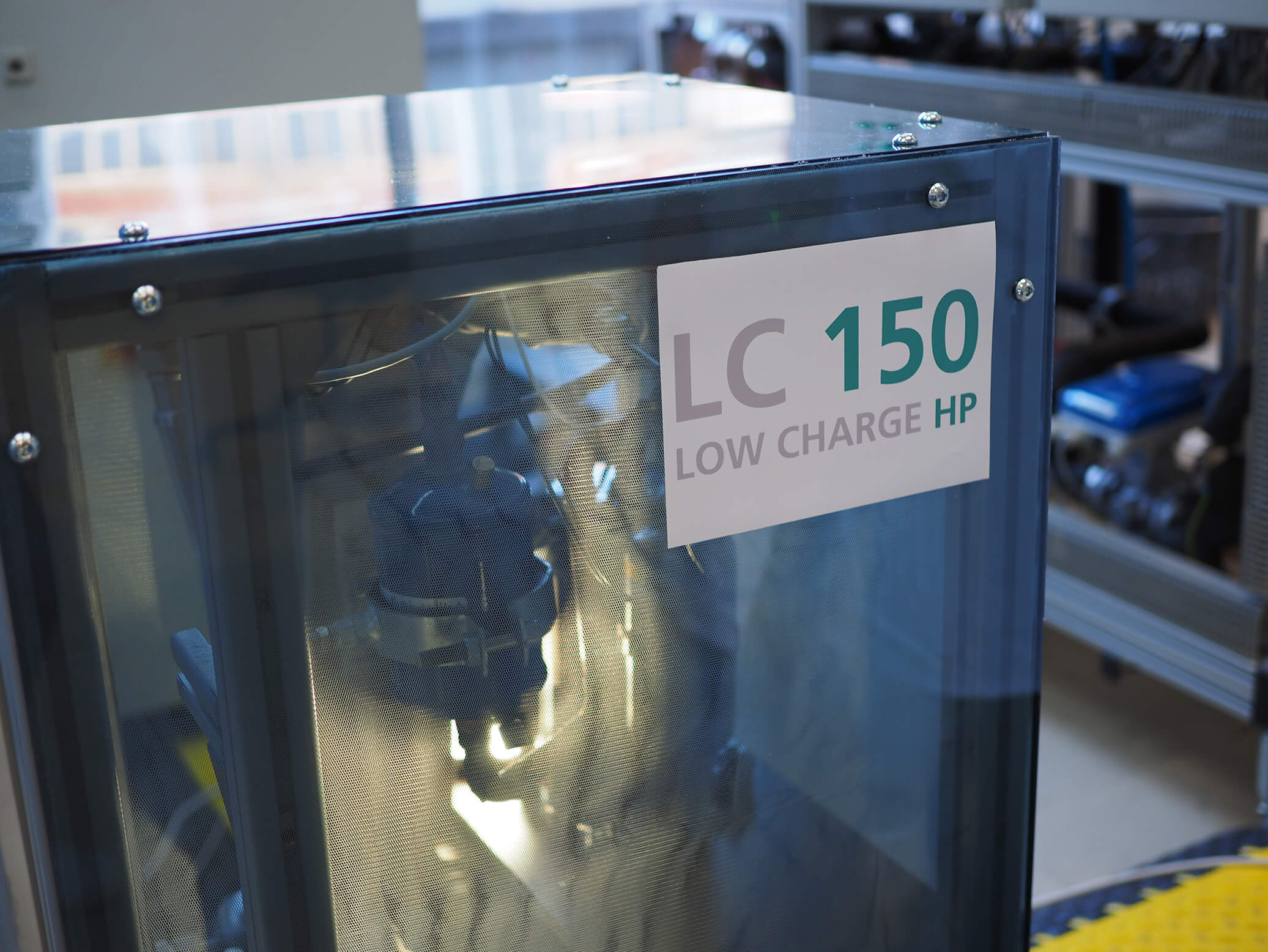Press Release #29
Consortium Develops Compact Refrigeration Circuit for Heat Pumps Using Propane
Heat pumps will be the most important heating technology in the future. To accelerate market penetration, heat pump manufacturers are working on reducing the costs and finding sustainable refrigerants. The Fraunhofer Institute for Solar Energy Systems ISE is developing a compact and cost-efficient refrigeration circuit for heat pumps which use propane as refrigerant in the research project "LC150 Development of a Refrigerant-reduced Heat Pump Module with Propane", funded by the German Federal Ministry for Economic Affairs and Energy BMWi. A broad industrial consortium of European heat pump manufacturers is both financially supporting and technically accompanying the development in the project. The joint development platform is meant to open up considerable cost reduction potential to the participating companies and accelerate the industrial development of heat pumps for residential buildings.

The project aim is to develop a standardized refrigeration circuit with low refrigerant charge in cooperation with heat pump manufacturers and suppliers. The standardized unit shall be qualified for different components. The result shall be made available to the participating partners conceptually or even implemented in a joint production.
"Currently the industry is working in parallel on the many aspects dealing with the conversion of propane heat pumps. Thermodynamically propane classifies as a very suitable refrigerant, however because it is flammable, it might need more security measures. Reducing the volume of refrigerant required is therefore obvious and also possible to a significant extent, as our preliminary work has shown," explains Dr. Lena Schnabel, Head of the Department of Heating and Cooling Technology at Fraunhofer ISE. The simultaneous requirements of high efficiency and operational reliability pose a challenge. Here, the project wants to create technical answers and accumulate design expertise through broad measurement and simulation campaigns, to which the participating partners will receive priority access. The market acceleration of heat pump units is absolutely necessary for the energy transition. Support for this will be provided by the joint development of safety tests, by addressing the development issues jointly with component suppliers and, in a best case scenario, by joint production.
Joint Platform Development
Up to now, every European manufacturer has developed its own refrigerant circuit for each of the various refrigerants and performance classes. The LC150 project is now breaking new ground with its joint development platform which enables significant cost reductions through higher quantities and automated production. As in the automobile sector, synergies are now to be identified between manufacturers in the heat pump sector so that standardized parts can be used in the refrigeration circuit. Based on the knowledge gained, a modular design for different series and performance classes can be developed, thereby opening up further synergies.
Propane as natural refrigerant
The EU regulation on fluorinated greenhouse gases mandates a 70 decrease in harmful emissions from refrigerants by 2030 compared to 1990. For heat pump manufacturers, propane is becoming increasingly important as natural refrigerant. It is widely available and has excellent thermodynamic properties, which allows for a higher efficiency (ratio of useful heat generated and energy used for generation) compared to conventional heat pumps. At the same time, the global warming potential GWP of 3 is 500 times lower than the GWP of the classic fluorinated refrigerants most commonly used today.
In 2019, as part of a potential study, Fraunhofer ISE succeeded in developing a brine-water cooling circuit using components available on the market. The circuit requires only 150 grams of propane for a heating capacity of 8 kW, which corresponds to a refrigerant reduction of 75 percent compared to systems on the market. A heat pump based on this concept could be placed inside the home, as a refrigerator, without any additional safety precautions. "We are confident that this reduction in refrigerant can also be achieved for other capacities and operating points when the singular components are customized for the use of propane," says Dr. Peter Schossig. In the project, the optimization of the performance, efficiency and operational stability are addressed. The decisive factors for the overall optimization are the use of heat exchangers, compressors and piping systems with reduced refrigerant charge and the development of operating modes that allow the refrigerant to be distributed well throughout the components.
The Project Consortium
The project is being carried out at Fraunhofer ISE. An advisory board with members from industry will be jointly involved in the task discussion and work plan, thus ensuring relevance to the practice. The following companies intend to participate in the project, the financing and the advisory board: Vaillant, Kermi GmbH, Bosch Thermotechnik GmbH, Viessmann Werke Allendorf GmbH, BDR Thermea and ait-deutschland GmbH.
The project is 75 percent funded by the Federal Ministry of Economic Affairs and Energy BMWi (funding code 03EN4001A).
Up until the end of 2020, further partners are welcome to join the consortium.
Last modified: